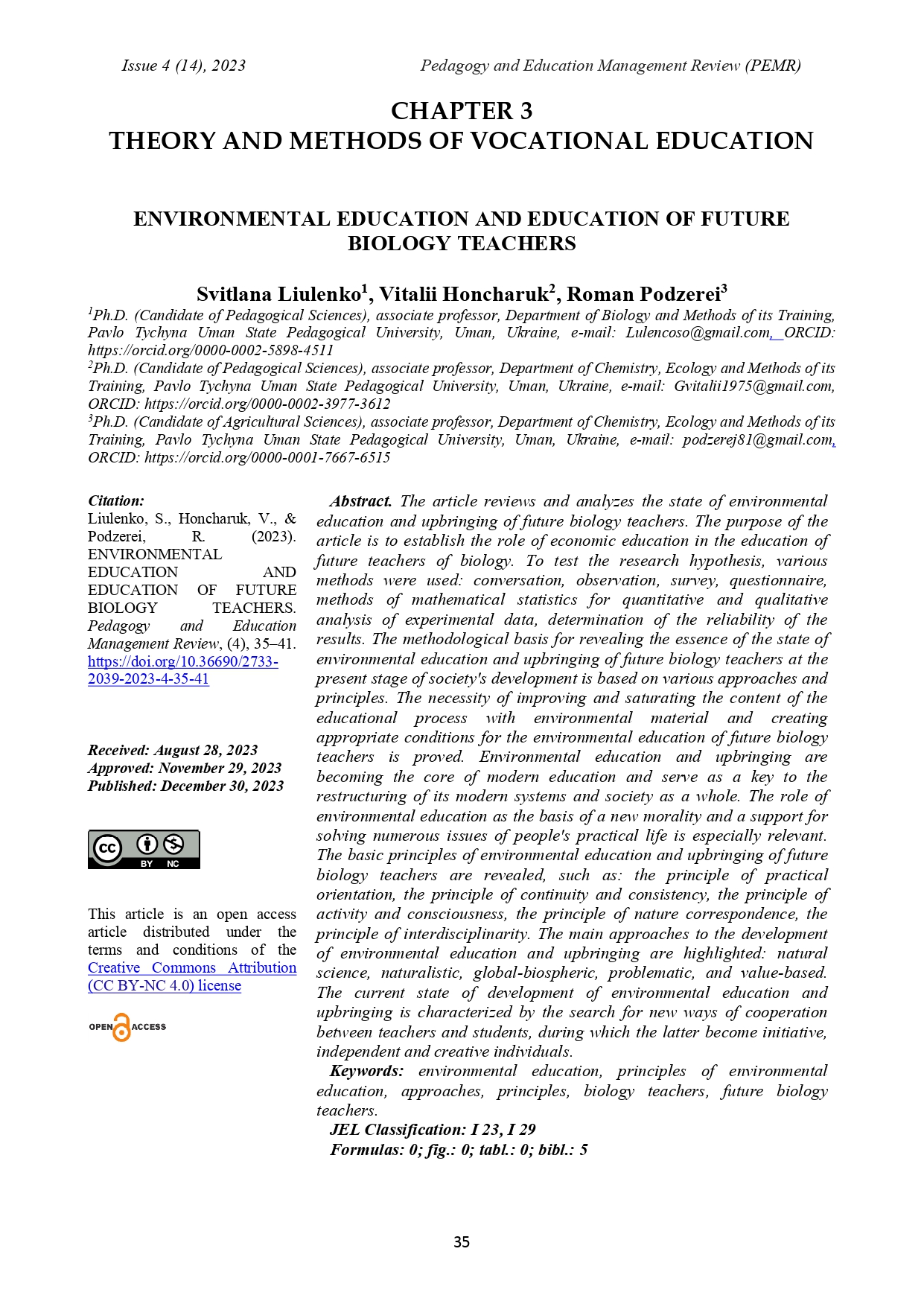ENVIRONMENTAL EDUCATION AND EDUCATION OF FUTURE BIOLOGY TEACHERS
DOI:
https://doi.org/10.36690/2733-2039-2023-4-35-41Keywords:
environmental education, principles of environmental education, approaches, principles, biology teachers, future biology teachersAbstract
The article reviews and analyzes the state of environmental education and upbringing of future biology teachers. The purpose of the article is to establish the role of economic education in the education of future teachers of biology. To test the research hypothesis, various methods were used: conversation, observation, survey, questionnaire, methods of mathematical statistics for quantitative and qualitative analysis of experimental data, determination of the reliability of the results. The methodological basis for revealing the essence of the state of environmental education and upbringing of future biology teachers at the present stage of society's development is based on various approaches and principles. The necessity of improving and saturating the content of the educational process with environmental material and creating appropriate conditions for the environmental education of future biology teachers is proved. Environmental education and upbringing are becoming the core of modern education and serve as a key to the restructuring of its modern systems and society as a whole. The role of environmental education as the basis of a new morality and a support for solving numerous issues of people's practical life is especially relevant.The basic principles of environmental education and upbringing of future biology teachers are revealed, such as: the principle of practical orientation, the principle of continuity and consistency, the principle of activity and consciousness, the principle of nature correspondence, the principle of interdisciplinarity. The main approaches to the development of environmental education and upbringing are highlighted: natural science, naturalistic, global-biospheric, problematic, and value-based. The current state of development of environmental education and upbringing is characterized by the search for new ways of cooperation between teachers and students, during which the latter become initiative, independent and creative individuals.
Downloads
References
Dahbaeva N. Zh.. Systemnыi podkhod k эkolohycheskomu obrazovanyiu mladshykh shkolnykov. Nachalnaia shkola. 6. 2003. p.24.
Lokshyna O. & Pustovit N. (1999). Suchasni tendentsii ekolohichnoi osvity. Shliakh osvity. 2. pp. 27–29.
Liulenko S.O. (2014). Pidhotovka maibutnoho vchytelia pryrodnychykh dystsyplin do pryrodookhoronnoi roboty v zahalnoosvitnii shkoli: dys. … kandydata ped. nauk: 13.00.04. Uman, 200 p.
Liulenko S.O. (2013). Metodolohichni pidkhody u ekolohichnii osviti. Pryrodnychi nauky v systemi osvity : materialy Mizhnarodnoi naukovo-praktychnoi konferentsii (Uman, 27 liutoho 2013 r.). Uman: PP Zhovtyi O. O. pp. 147-150.
Khomych L. O. (1998). Profesiino-pedahohichna pidhotovka vchytelia pochatkovykh klasiv. K.: Mahistr-S. 201 p.







